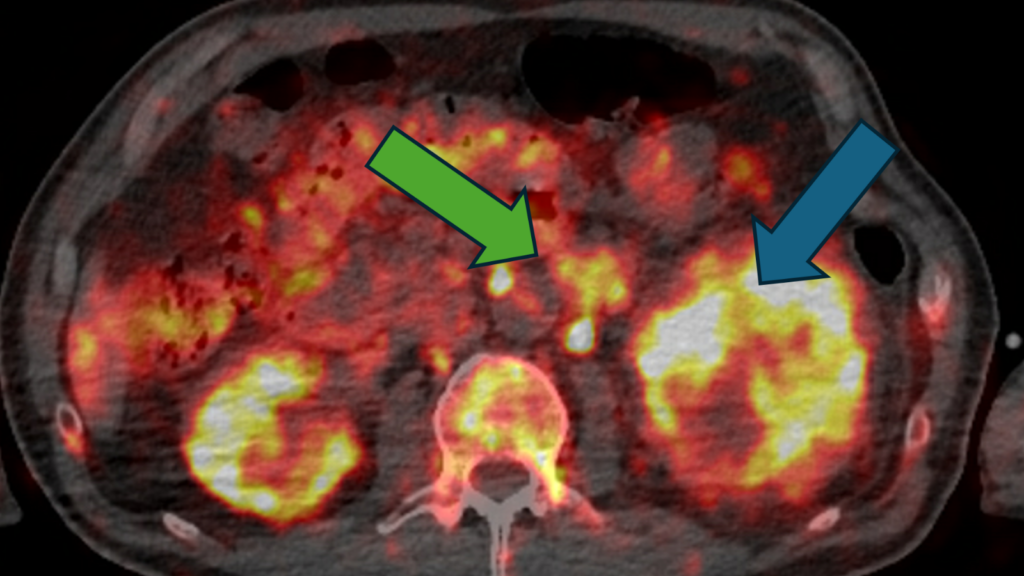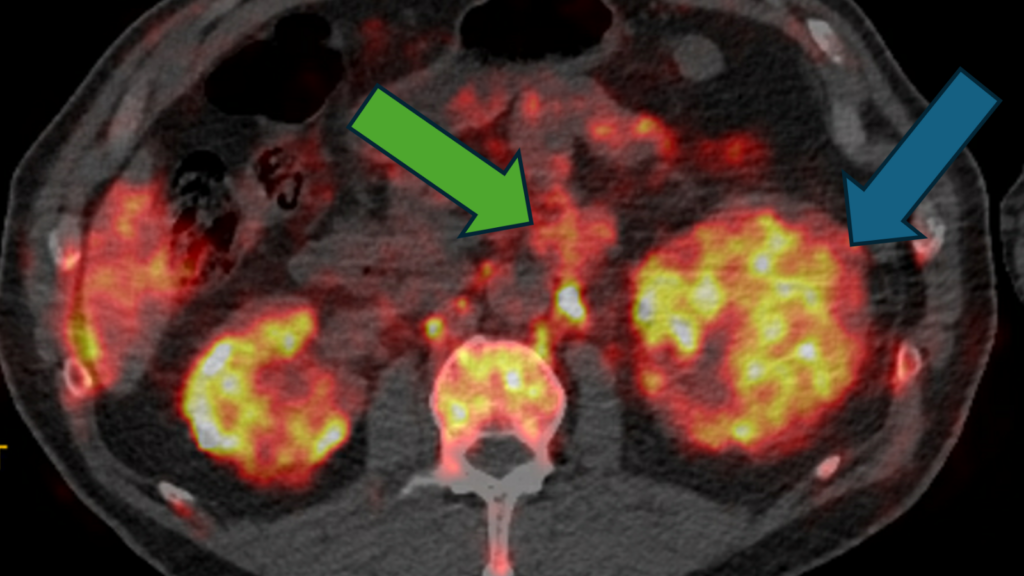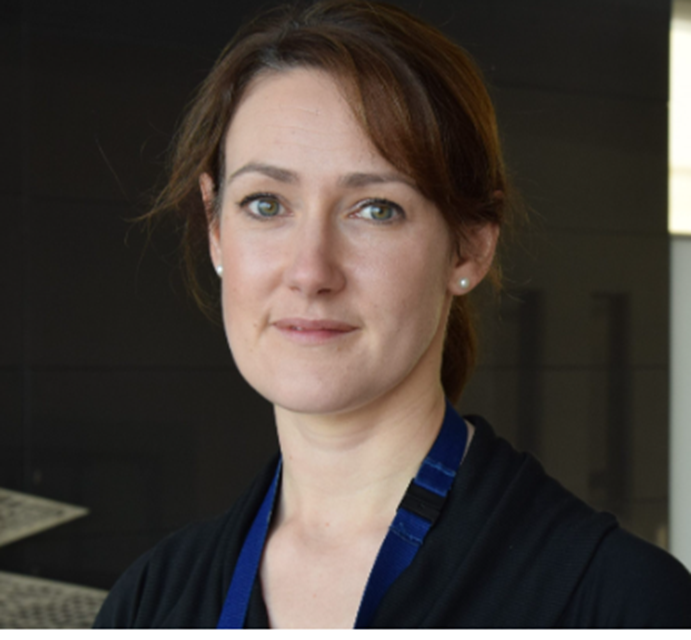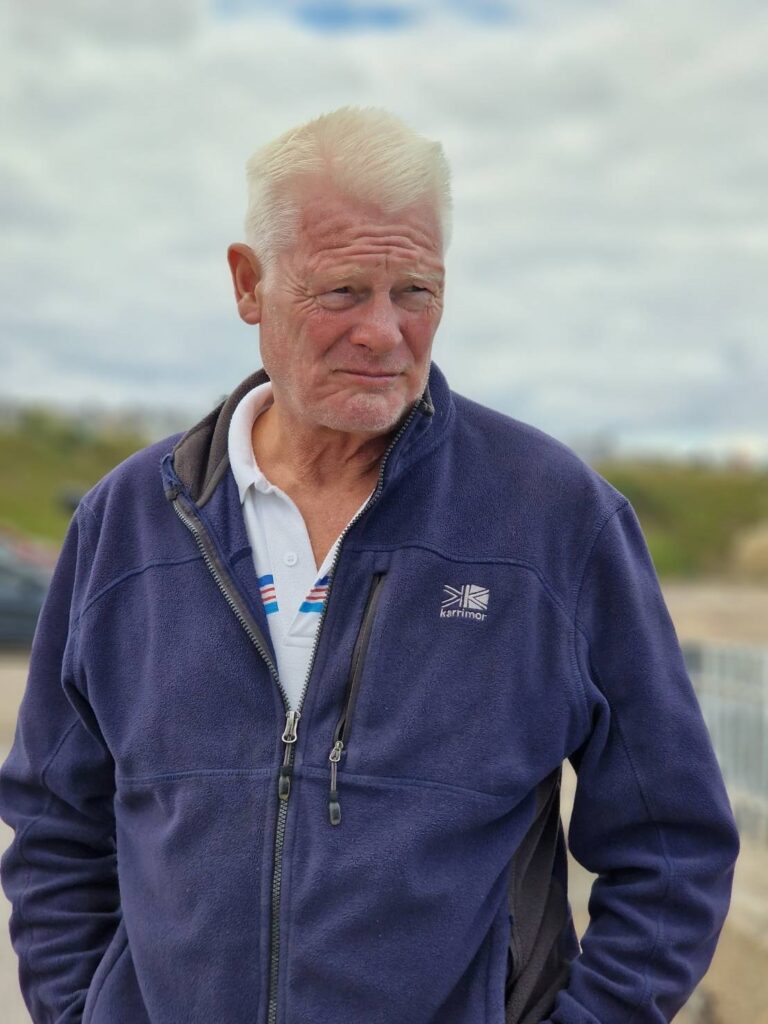- The Freeman Hospital in Newcastle was the first site in the UK to recruit a patient.
A research trial which hopes to predict how well patients will respond to cancer treatment is underway at the Freeman Hospital in Newcastle upon Tyne.
The trial, called iPREDICT, uses an investigational imaging agent called CD8 ImmunoPET which illuminates CD8+ cells on a PET scan.
Finding and attacking cancer cells
CD8+ cells have been shown to attack and kill cancer cells and where they are located may indicate how well a patient responds to immunotherapy – a treatment which uses the immune system to find and attack cancer cells.


Currently, the only way to determine the number of CD8+ cells is by biopsy, but this only provides information on a single tumour lesion. CD8 ImmunoPET could provide important information on these cancer-killing cells in the body.
The trial is led by consultant clinical oncologist, Dr Rachel Pearson, who works at the Northern Centre for Cancer Care (NCCC), based at the Freeman Hospital. It is supported by the trust’s oncology and haematology research team.

Dr Pearson said: “Research is a vital part of finding ways to not only treat cancer, but how we detect it and develop the best treatment plan.
“Unfortunately, we know that not all patients benefit from immunotherapy, but if we can find this out at the earliest possible opportunity it saves them going through unnecessary treatment and unpleasant side-effects.
“Usually, we assess how well a treatment is working after two to three months, but we hope these new scans will tell us within a matter of weeks whether the treatment is working.”
Robert’s story
64-year-old Sunderland resident Robert Charlton was diagnosed with kidney cancer in January 2022.
Robert, who is a mechanic by trade, booked a doctor’s appointment when a customer spotted a lump under his jawbone. He was sent Sunderland Royal Hospital two weeks later and scans confirmed the diagnosis.
He was given chemotherapy tablets and the lump on his jawbone starting to go down.
Dr Pearson, Robert’s consultant, told him about the opportunity to take part in the iPREDICT trial at the Freeman Hospital, part of The Newcastle upon Tyne Hospitals NHS Foundation Trust.

Robert said:
“Hearing the news I had kidney cancer was an awful shock, especially because I felt generally well.
“I decided to take part in the research study because I felt it was the least I could do. Even if it doesn’t directly benefit me, it could help people in the future who have been diagnosed with cancer.
“I’m continuing to have treatment at Sunderland Royal and am feeling well. I’ve made several trips to Thailand with my wife to visit family, something I’ve been doing for the last 22 years. It means a lot to me that I can continue to make the trip.”
Dr Pearson, who is also honorary senior clinical lecturer at Newcastle University, added:
“Time is really important when it comes to treating cancer, so this approach is a promising development which we hope will benefit patients in the future.”
- Newcastle University and Newcastle Hospitals are both part of Newcastle Health Innovation Partners (NHIP). NHIP is one of eight prestigious Academic Health Science Centres (AHSCs) across the UK, bringing together partners to deliver excellence in research, health education and patient care.
